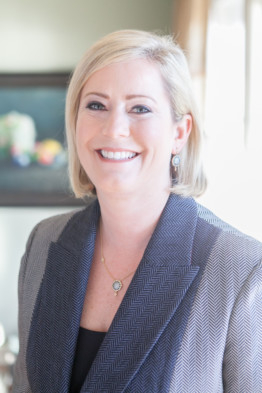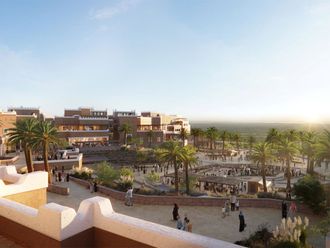
DUBAI: The rise of online travel agents and home-share sites such as Airbnb need not be a threat to the established hotel industry, Preferred Hotels President and CEO Lindsey Ueberroth believes.
In an interview following the media preview of Preferred Hotels’ 2016 Global Conference, which begins in Dubai on Wednesday, Ueberroth said there was still a niche for traditional hotels.
The US-based firm does not own or operate hotels, but operates sales, marketing, distribution and quality assurance for 650 independent hotels worldwide, including 22 in the Middle East — up from 8 hotels in 2014.
It was looking at expanding further both within the UAE — she cited Dubai, Abu Dhabi, Fujairah and Ras Al Khaimah — and elsewhere in the Gulf.
In its rebranding last year, Preferred looked at a new line of hotel residences. In the past, around 40 member hotels offered high-end, exclusive residences, but the group has now extended into condo hotels and managing other residential units linked to hotels to ensure varied price points.
“We’re not going to compete head-on with Airbnb,” Ueberroth said, “but I think we can fill a great niche for that traveller who says, ‘I want all the options of a residence, but I want access to all the amenities of a hotel, I want to know that it’s quality inspected, that it can be booked through a travel agent.
“This is our response.”
Independent hotels were becoming increasingly popular in the region, Ueberroth said. “Before the advent of review sites and the internet, people really liked the consistency of a chain. Now the consumer, the traveller, says, ‘Hey, there’s a lot of transparency here,’ and they like the authentic experience. Owners are saying, ‘I want to build a hotel that caters to that.’”
In her main presentation, Ueberroth said social media had become a major driver of trade, with around 90 per cent of people trusting peer recommendations compared to 33 per cent trusting traditional advertising.
She said the Middle East was one of the fastest-growing hospitality markets in the word. Between 2014 and 2016, Preferred member hotels had seen a thousand per cent growth in bookings, she said in her main presentation. Later, she added, “For us, it was clearly an underdeveloped market. We did not have a lot of properties. Part of it is that they are markets that have a lot of hotel development going on and are developing independent hotels, which in the past was not the case.”
Ueberroth acknowledged revenue per available room (RevPAR) in the Middle East had taken a hit since the fall in oil prices, and could she could not say when it would increase again, but added, “We are very bullish on our growth here.
“Part of it is shifting share. There are certain markets that obviously drove a lot of the business, so now it’s our job [to find] what other feeder markets we can get that business from.”
There was also potential in expanding the meetings, incentives, conventions and exhibitions (Mice) side of the business, Ueberroth said.
“It’s really easy when you have the faucet turned on and all the business is coming from certain markets. Work is hard on other markets. That’s really what we’re doing, we’re just shifting, saying what are the other markets we really should be focusing on.”
Preferred’s growth plans focused on first on key city centre locations and “concentric circles around that”, she added. “It’s a hub and spoke approach,” she said.












